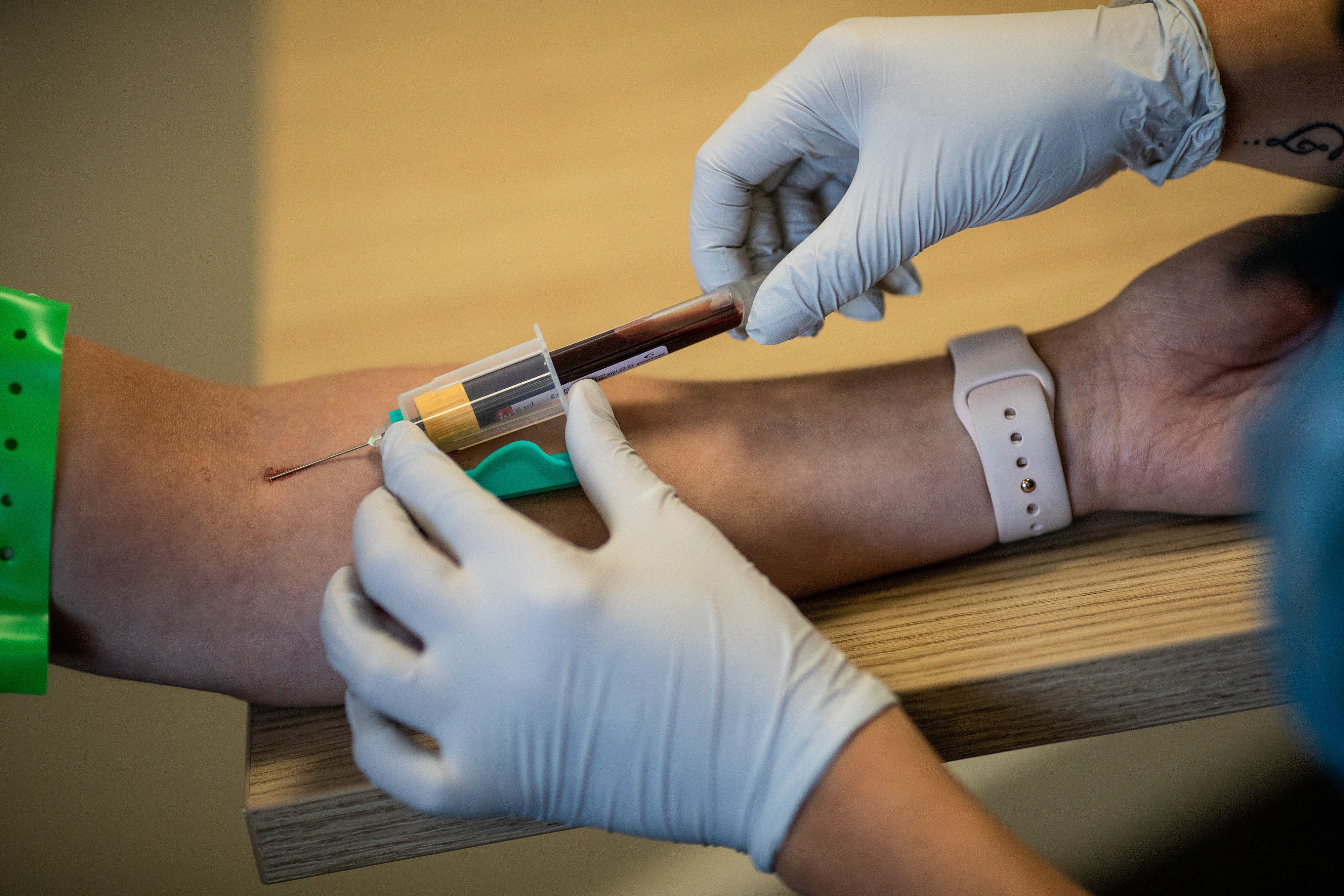Parkinson’s breakthrough as blood test could help develop cure
The new blood test could allow Parkinson’s disease to be diagnosed and treated earlier

A blood test that can detect Parkinson’s disease could be a breakthrough in finding a cure for the condition, researchers have suggested.
It is hoped the findings of a US study, published in the journal Science Translational Medicine, could lead to treatments that halt the progression of the disease before it affects a patient’s nervous system, or even help reverse damage on a cellular level.
The blood test was developed by a team of neuroscientists from Duke Health by examining DNA damage in the mitochondria – small, energy-producing structures found inside cells.
Mitochondria contain their own DNA that can be damaged separately from the nuclear DNA that makes up most of a human genome.
The team developed a test that showed higher levels of mitochondrial DNA damage in blood cells collected from patients with Parkinson’s disease compared to people without the condition.
The test also identified high levels of damaged DNA in blood samples from those with the genetic mutation LRRK2, which has been associated with an increased risk of Parkinson’s.
Professor Laurie Sanders, an associate professor in Duke School of Medicine’s departments of Neurology and Pathology, said the new blood test could allow Parkinson’s disease to be diagnosed and treated earlier.
Prof Sanders said: “Currently, Parkinson’s disease is diagnosed largely based on clinical symptoms after significant neurological damage has already occurred.
“A simple blood test would allow us to diagnose the disease earlier and start therapies sooner.
“Additionally, a clear-cut diagnosis would accurately identify patients who could participate in drug studies, leading to the development of better treatments and potentially even cures.”
Prof Sanders added: “Our hope is that this assay [test] could not only diagnose Parkinson’s disease, but also identify drugs that reverse or halt mitochondrial DNA damage and the disease process.
“This disease takes a terrible toll on people, and we are still just treating the symptoms. It’s important to get new, effective treatments over the finish line.”
Subscribe to Independent Premium to bookmark this article
Want to bookmark your favourite articles and stories to read or reference later? Start your Independent Premium subscription today.

Join our commenting forum
Join thought-provoking conversations, follow other Independent readers and see their replies